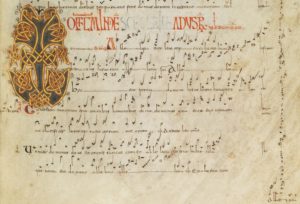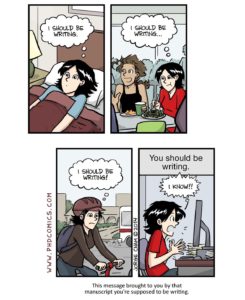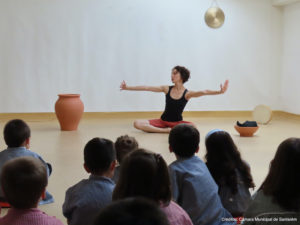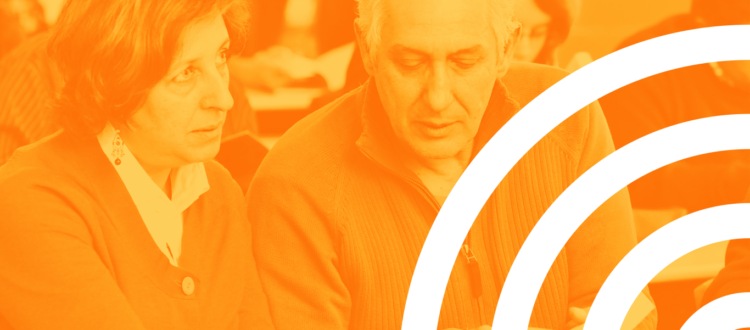CESEM at FCSH’s Summer School
Music Palaeography. An Overview on Iberian Music Manuscripts (10th – 16th cent.)
 This course offers an overview on the changes occurred to music writing in the Iberian Peninsula from the tenth to the mid-sixteenth centuries. Firstly, the Old Hispanic notation was replaced by Aquitanian notation at the end of the eleventh century. Subsequently, the graphical appearance of Aquitanian notation changed due to the influence of the Gothic script. The first half of this course focuses on Old Hispanic notation but we also briefly introduce Catalonian notation and its peculiarities. In addition to the analysis of the first ‘neumes’ (that is, the graphical shapes employed to represent music in early notations), we will make an excursion in the world of Visigothic cryptography, which was employed in notarial deeds and was shaped reusing some symbols commonly found in Old Hispanic notation. In the second half of the course we discuss Gregorian manuscripts in Aquitanian notation, both from Spain and Portugal. In this section, we discuss in great detail the characteristics of the notation as found in Portuguese sources. This is a course on Iberian music palaeography but we will also touch upon nearby areas such as codicology, liturgy, and history since they allow us to better understand the contents of the surviving medieval musical sources. The active participation of the students is essential to the development of the course. The students will be strongly encouraged to comment and analyse the sources displayed (facsimiles, digital images). Students ‘will learn by doing’; they will learn to read medieval notations and become proficient at writing medieval notations as well as transcribing them into modern score. In addition to the palaeographical skills they adquire, students will be ready for greater challenges such as the preparation of critical editions of early music and philological analysis.
This course offers an overview on the changes occurred to music writing in the Iberian Peninsula from the tenth to the mid-sixteenth centuries. Firstly, the Old Hispanic notation was replaced by Aquitanian notation at the end of the eleventh century. Subsequently, the graphical appearance of Aquitanian notation changed due to the influence of the Gothic script. The first half of this course focuses on Old Hispanic notation but we also briefly introduce Catalonian notation and its peculiarities. In addition to the analysis of the first ‘neumes’ (that is, the graphical shapes employed to represent music in early notations), we will make an excursion in the world of Visigothic cryptography, which was employed in notarial deeds and was shaped reusing some symbols commonly found in Old Hispanic notation. In the second half of the course we discuss Gregorian manuscripts in Aquitanian notation, both from Spain and Portugal. In this section, we discuss in great detail the characteristics of the notation as found in Portuguese sources. This is a course on Iberian music palaeography but we will also touch upon nearby areas such as codicology, liturgy, and history since they allow us to better understand the contents of the surviving medieval musical sources. The active participation of the students is essential to the development of the course. The students will be strongly encouraged to comment and analyse the sources displayed (facsimiles, digital images). Students ‘will learn by doing’; they will learn to read medieval notations and become proficient at writing medieval notations as well as transcribing them into modern score. In addition to the palaeographical skills they adquire, students will be ready for greater challenges such as the preparation of critical editions of early music and philological analysis.
Date: 12 – 16 July
Schedule: Monday to Friday 10h00 to 13h00 and 14 h00 to 16h00
Duration: 25h | 2 ECTS
Area: History of Art and Artistic Studies
Teacher: Elsa De Luca
See event here
Registration here
ACADEMIC WRITING: AN ESSENTIAL SKILL TO SURVIVE IN ACADEMIA. BEGINNERS
 This course aims to provide the essential training for academic writing in English to international students with little or no experience. The aim of this course is to empower students by providing them with the essential knowledge on grammar rules and conventions concerning academic writing in English and discuss how to choose the most appropriate style of writing. The teaching method is entirely based on practice exercises. In other words, students will learn by doing. After a concise explanation of the topic, students will be given a practice exercise which will be subsequently commented together in the classroom so that they can immediately receive the necessary feedback.
This course aims to provide the essential training for academic writing in English to international students with little or no experience. The aim of this course is to empower students by providing them with the essential knowledge on grammar rules and conventions concerning academic writing in English and discuss how to choose the most appropriate style of writing. The teaching method is entirely based on practice exercises. In other words, students will learn by doing. After a concise explanation of the topic, students will be given a practice exercise which will be subsequently commented together in the classroom so that they can immediately receive the necessary feedback.
Date: 19 – 23 July
Schedule: 10h00 to 13h00
Duration: 15h
Area: Education and Teaching
Teacher: Elsa De Luca
See event here
Registration here
Academic Writing: An Essential Skill to Survive in Academia. Advanced
 ‘Publish or perish’ is a well-known say that gives a sense of the kind of expectations researchers should meet to survive in academia. This course provides the essential knowledge and training for academic writing in English. It is specifically targeted to scholars with some experience in academic writing who may have incurred in roadblocks or tend to procrastinate writing. Young writers who wish to be equipped with specific knowledge on the craft of academic writing could also benefit from it. Over the course of five days, we will discuss in detail the whole process of academic writing and break it down into sections. Laying out each section into smaller and more manageable tasks greatly increases the possibility of successful writing.
‘Publish or perish’ is a well-known say that gives a sense of the kind of expectations researchers should meet to survive in academia. This course provides the essential knowledge and training for academic writing in English. It is specifically targeted to scholars with some experience in academic writing who may have incurred in roadblocks or tend to procrastinate writing. Young writers who wish to be equipped with specific knowledge on the craft of academic writing could also benefit from it. Over the course of five days, we will discuss in detail the whole process of academic writing and break it down into sections. Laying out each section into smaller and more manageable tasks greatly increases the possibility of successful writing.
Date: 26 – 30 July
Schedule: 10h00 to 13h00
Duration: 15h
Area: Education and Teaching
Teacher: Elsa De Luca
See event here
Registration here
Movement and Listening in Early Childhood music sessions (0-5 years): Techniques, Tools and Proposals
 Research has highlighted the importance of musical experiences in early childhood and their relationship to later musical learning and social and human development. Expressive movement naturally participates in this musical development. However, its inclusion in pedagogical practices with children remains little explored, despite the importance attributed to it by different pedagogues (Dalcroze, Willems, Orff, Gordon). This course seeks to provide theoretical and practical knowledge to develop an appropriate and rich work in terms of movement in early childhood music sessions, and further contribute to the integral development of each child.
Research has highlighted the importance of musical experiences in early childhood and their relationship to later musical learning and social and human development. Expressive movement naturally participates in this musical development. However, its inclusion in pedagogical practices with children remains little explored, despite the importance attributed to it by different pedagogues (Dalcroze, Willems, Orff, Gordon). This course seeks to provide theoretical and practical knowledge to develop an appropriate and rich work in terms of movement in early childhood music sessions, and further contribute to the integral development of each child.
Date: 30 Aug – 3 Sept
Schedule: 10h00 – 13h00 and 17h00 – 19h00
Duration: 25h | 2 ECTS
Area: Education and Teaching
Teacher (coord.): Helena Rodrigues
Teacher: Ana Isabel Pereira
Teacher: Rita Roberto
See event here
Registration here
Living through Singing: A Sensitive Path to Broadening Sensitivity and Vocal Expression
 This course aims to enable the recognition of the ability to sing as being inherent to every person. It will provide practical resources and theoretical concepts that allow the development of the voice and the expression of the subject through singing. Singing is an act incorporated and experienced in the body. Singing is an experience that favors the creative act in a social process modulated by the situation in which it happens. This artistic practice involves all the senses, promotes personal integration, the broadening of sensibility, the recognition and awareness of oneself and of others, and embraces the entire environment that surrounds it, strengthening the sense of community.
This course aims to enable the recognition of the ability to sing as being inherent to every person. It will provide practical resources and theoretical concepts that allow the development of the voice and the expression of the subject through singing. Singing is an act incorporated and experienced in the body. Singing is an experience that favors the creative act in a social process modulated by the situation in which it happens. This artistic practice involves all the senses, promotes personal integration, the broadening of sensibility, the recognition and awareness of oneself and of others, and embraces the entire environment that surrounds it, strengthening the sense of community.
Date: 5 – 9 July
Schedule: 10h00 – 13h00
Duration: 15h
Area: Education and Teaching
Teacher (coord.): Helena Rodrigues
Teacher: Cecília Valentim
See event here
Registration here

